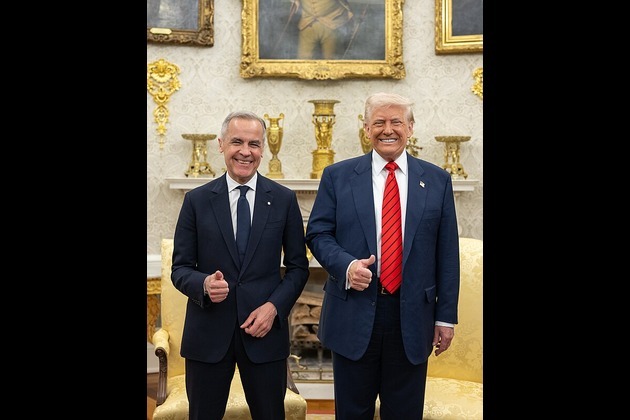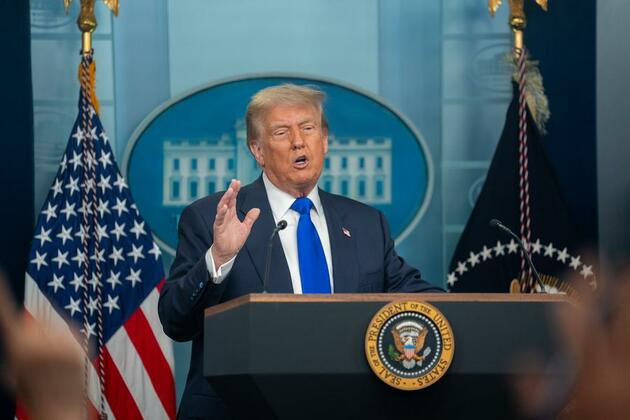Connecticut Ends All Taxes on Purchases of Gold and Silver
ACCESS Newswire
01 Jul 2025, 18:25 GMT+10
HARTFORD, CT / ACCESS Newswire / July 1, 2025 / Connecticut Gov. Ned Lamont (D) signed House Bill 7287 into law which includes a provision removing the last remaining tax on purchases of gold, silver, platinum, and palladium bullion.
The Connecticut General Assembly originally considered a standalone sound money bill, carried by lead sponsor Sen. John Fonfara (D-1). The bill received a successful hearing before eventually being amended and absorbed into the state's larger budget bill.
Both Sen. Fonfara, a strong advocate for sound money and fiscal responsibility in Connecticut and Erik Bartone, managing director for Cygnus Financial Group based in Glastonbury, CT, delivered strong testimony in favor of this measure.
Connecticut had been one of only six states in the United States maintaining merely a partial sales tax exemption on purchases of precious metals. Connecticut's regressive practice of taxing only purchases under $1,000 singled out small-time savers for a tax penalty that larger gold and silver purchases do not face.
By enacting HB 7287 with the sound money language intact, Connecticut has set an example for legislators in California, Florida, Massachusetts, New Jersey, and New York, where smaller-sized purchases (under $500, $1,000, or $2,000) of precious metals are still hit with sales taxes.
The Connecticut sales tax exemption on the monetary metals will take effect on July 1, 2027.
The measure also calls for the establishment, effective upon the bill's signing, of a Connecticut precious metals working group to monitor (1) economic conditions, (2) inflation expectations, (3) precious metals prices and activities, including the market activities of leading commodities exchanges and bullion market associations, and (4) precious metals legislation proposed in or enacted by other states.
The working group will be made up of members of the General Assembly, the state treasurer, and any other individuals necessary to carry out the duties of the working group. Commencing in 2026 and annually thereafter, the working group is expected to submit a report summarizing the group's findings, including any recommendations to improve the precious metals market in the state.
Meanwhile, a full exemption bill passed in Kentucky earlier this year, as the national backlash against taxing constitutional money accelerates in today's environment of rising inflation and geopolitical conflict.
Including Connecticut, 44 U.S. states now fully or partially exempt gold and silver from the sales taxes as of this writing. That leaves 6 states and the District of Columbia as the primary jurisdictions that still harshly penalize citizens seeking to protect their savings against the serial devaluation of the Federal Reserve Note.
This year, Virginia and Maryland reimposed sales tax on all purchases of precious metals in their states, and in January 2026, Washington will begin taxing metals as well. The Sound Money Defense League and Money Metals Exchange are already in communication with lawmakers in these three states to ensure legislation is introduced next year to restore the lost exemptions.
Jp Cortez, executive director for the Sound Money Defense League, explained that 'by eliminating sales taxes on purchases of precious metals under $1,000, a huge impediment has been removed to storing one's wealth in gold and silver and Connecticut has officially joined the sound money movement. The Constitution State has earned its namesake by further aligning itself with the U.S. Constitution related to sound money issues.'
'Inflation has become an undeniable problem due to financial mismanagement by the Federal Reserve and by the politicians in Washington DC. Thankfully, both large and small investors in Connecticut can now protect the purchasing power of their wealth with sound money without being taxed' said Money Metals Exchange president Stefan Gleason, whose company is the leading advocate for sound money policy in the United States.
States have been removing sales taxes from monetary metals for the following reasons:
Taxing precious metals is unfair to certain savers and investors. Gold and silver are held as forms of savings and investment. States do not tax the purchase of stocks, bonds, ETFs, currencies, and other financial instruments, so it makes no sense to tax monetary metals.
Levying sales taxes on precious metals is illogical because gold and silver are inherently held for resale. Sales taxes are typically levied on final consumer goods. But precious metals are inherently held for resale, not 'consumption.'
Taxing gold and silver harms in-state businesses. It's a competitive marketplace, so buyers in states with precious-metals sales taxes often take their business to neighboring states that have eliminated or reduced sales tax on precious metals. Coin conventions also tend to avoid the sales tax states.
Taxing precious metals is harmful to citizens attempting to protect their assets. Purchasers of precious metals aren't fat-cat investors. Most who buy precious metals do so in small increments as a way of saving money. Precious metals investors are purchasing precious metals as a way to preserve their wealth against the damages of inflation. Inflation harms the poorest among us-including pensioners, Connecticuters on fixed incomes, wage-earners, savers, and more.
2025 has become another extremely successful year for sound money policies across the country. The Sound Money Defense League has now worked on successful 2025 legislative projects in Wyoming which will establish a $10 million state gold reserve, Idaho which reaffirmed gold and silver as constitutional money and eliminated the state capital gains tax on precious metals, Alabama which declared gold and silver to be legal tender, and now Connecticut which has ended sales taxes.
Jp Cortez
[email protected]
SOURCE: Sound Money Defense League
View the original press release on ACCESS Newswire
 Share
Share
 Tweet
Tweet
 Share
Share
 Flip
Flip
 Email
Email
Watch latest videos
Subscribe and Follow
Get a daily dose of Raleigh Times news through our daily email, its complimentary and keeps you fully up to date with world and business news as well.
News RELEASES
Publish news of your business, community or sports group, personnel appointments, major event and more by submitting a news release to Raleigh Times.
More InformationBusiness
SectionLululemon accuses Costco of selling knockoff apparel
Vancouver, Canada: A high-stakes legal showdown is brewing in the world of athleisure. Lululemon, the Canadian brand known for its...
Shell rejects claim of early merger talks with BP
LONDON, U.K.: British oil giant Shell has denied reports that it is in talks to acquire rival oil company BP. The Wall Street Journal...
Wall Street extends rally, Standard and Poor's 500 hits new high
NEW YORK, New York - U.S. stock markets closed firmly in positive territory to start the week Monday, with the S&P 500 and Dow Jones...
Canadian tax on US tech giants dropped after Trump fury
WASHINGTON, D.C.: On Friday, President Donald Trump announced that he was halting trade discussions with Canada due to its decision...
Trump-backed crypto project gets $100 million boost from UAE fund
LONDON, U.K.: A little-known investment fund based in the United Arab Emirates has emerged as the most prominent public backer of U.S....
DIY weight-loss drug trend surges amid high prices, low access
SAN FRANCISCO, California: Across the U.S., a growing number of people are taking obesity treatment into their own hands — literally....
North Carolina
SectionJob board pioneers CareerBuilder, Monster face bankruptcy
NEW YORK, U.S.: Two giants of the early internet job search era—CareerBuilder and Monster—have formally filed for bankruptcy protection,...
"Elon may get more subsidy than any human being in history": Trump hits out at Musk, EV mandates
Washington [US], July 1 (ANI): US President Donald Trump on Tuesday (local time) reiterated his opposition to electric vehicle (EV)...
"Important for Joff to be around the group this week": England skipper Stokes on Archer's inclusion in squad
Birmingham [UK], July 1 (ANI): Ahead of England's second Test against India at Birmingham, England skipper Ben Stokes spoke on express...
Musk slams Trump-backed Senate bill as 'utterly insane and destructive'
Washington [US], June 30 (ANI): Tech billionaire Elon Musk strongly criticised President Trump's 'big, beautiful bill,' calling it...
Roundup: Trump's tax and spending bill faces Democratic resistance, GOP divisions as Senate debate begins
GOP leaders are determined to advance Trump's signature agenda. But the bill's complexity, internal party fractures and Democratic...
Archer to feature for England at Edgbaston? Rob Key teases return of "world-class" speedster against India
London [UK], June 28 (ANI): ECB managing director of men's cricket, Rob Key, dropped a subtle hint about tearaway Jofra Archer's return...













